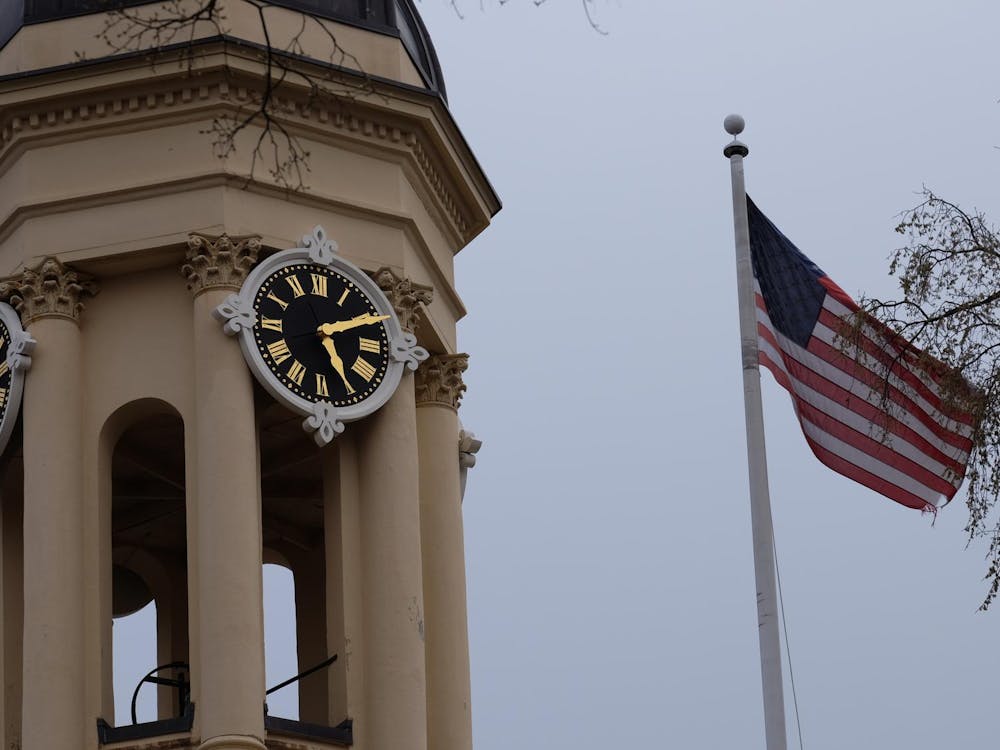Regarding ‘Fiddling while our lead burns,' (Wednesday, Feb. 27, 2008):
While I am pleased to see a number of our peers announcing improvements to their aid programs that will benefit many students in future years, it is incorrect to suggest that the recently unveiled plans surpass Princeton's aid policies. In every case, these major program changes either match or partially match initiatives pioneered by Princeton since 2001: no-loan packages, eliminating or reducing the impact of home equity in the need formula, campus job reductions, establishing on-line aid estimators and more. Princeton continues to improve its program, as evidenced by the recent increase in the upperclass board allowance.
There is much confusion about how these new aid enhancements compare to Princeton, and it may stem from oversimplified descriptions of how aid programs work. Contrary to some media reports, all of our peers will continue to collect family financial information and perform a complete financial need analysis in determining eligibility for grants. Family assets, whether or not home value is considered, are a part of this analysis, and need formulas all have an automatic allowance to protect savings considered "typical" for each family. The details of need formulas vary from school to school, but the results can be compared by looking at the average grants students receive when grouped in family income categories. Some schools have decided to describe these results as "free tuition," such as Dartmouth's announcement that tuition is free for families with incomes up to $75,000 (meaning the average grant equals or exceeds tuition). Others refer to "no parental payment required," such as Stanford's zero contribution for parents with incomes below $60,000 (meaning the average grant covers tuition, room and board; students pay for books and personal expenses from their earnings).
By these standards, Princeton is currently "tuition free" for families with incomes up to $100,000 and asks for no parental payment for families with incomes up to $75,000. While the effect of our colleagues' new aid plans remains to be seen, it is clear that Princeton's program already equals or surpasses the high expectations established for next year.
Robin Moscato, Director, undergraduate financial aid
Come out of the cave

Regarding ‘A place to weather the storm,' (Friday, Feb. 29, 2008):
In his curious op-ed, Tom Haine '08 advocates a center catering to the needs of students who adhere to a chaste lifestyle. Haine thinks a chastity center similar to the LGBT Center is necessary because chaste students constitute "another sexual minority in need of similar institutional help." The Daily Princetonian's editorial board, in its very sensible statement on the issue, correctly describes the need for such a center as "questionable." Indeed, as recent events have shown, conservative students have no one to fear but themselves.
But what I find much more troubling than Haine's advocacy of poorly thought-out ideas is the dangerous ignorance of homosexuality he demonstrates along with this advocacy. Haine takes issue with the "ideological commitments" of the LGBT Center. Apparently, models of human flourishing of which Haine personally disapproves are merely "ideological." Elsewhere he resorts to similar formulas, describing affirmative views of homosexuality in terms of "ideological demographics" and "ideological positions." The reduction of homosexuality to an ideology is itself the most ideological point of all. It implies homosexuality is a voluntary choice - something which flies in the face of human experience and scientific evidence. Moreover, by making sexual orientation a mere decision ad libitum, Haine opens it up to the censure and punishment which attend upon immoral action. But perhaps this is keeping with the "traditional ethical norms" upon which he lavishes such praise.
The historical and contemporary oppression faced by homosexuals is of an intensity, ubiquity and even violence which I doubt very much Tom Haine has experienced, however unpopular his sexual traditionalism has made him, our class president, at the liberal police-state of Princeton University. If his doctrinaire and dangerously reductive opinions of homosexuality are representative of the minority he seeks to represent, then perhaps an echo-chamber is the last thing they need. The "weather" is fine, Tom. Why don't you step out of the cave?

Hal Parker '08







